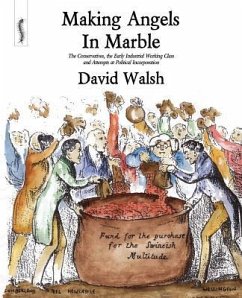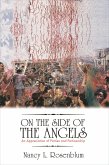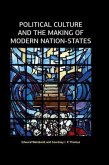In the first elections called under the terms of the 1832 Reform Act the Tory party appeared doomed. They had recorded their worst set of results in living memory and were organizationally in disarray as well, importantly, seemingly completely out of touch with the current political mood. During the intense pressure brought to bear by the supporters of political reform was the use of "pressure from without" and in this tactic the industrial working class were highly visible. Calls for political reform had been growing since the 1760s and given fresh impetus with the revolutions in America and France respectively. The old Tory party had been resistent to all but the most the most glaring corruption and abuse under the pre-Reform system, not least to the idea of extending the electoral franchise to the 'swineish multitude', as Edmund Burke notoriously described the working class. Yet within five years after the passing of reform the Conservatives - the natural heirs to the old Tory party - were attempting to politically incorporate sections of the working class into their ranks. This book examines how this process of making these 'Angels in Marble', to use Disraeli's phrase from a later era, took shape in the 1830s. It focuses on how a section of the industrial working class became the target of organizational inclusion into Peelite Conservatism and ultimately into the British party political system.
Hinweis: Dieser Artikel kann nur an eine deutsche Lieferadresse ausgeliefert werden.
Hinweis: Dieser Artikel kann nur an eine deutsche Lieferadresse ausgeliefert werden.








